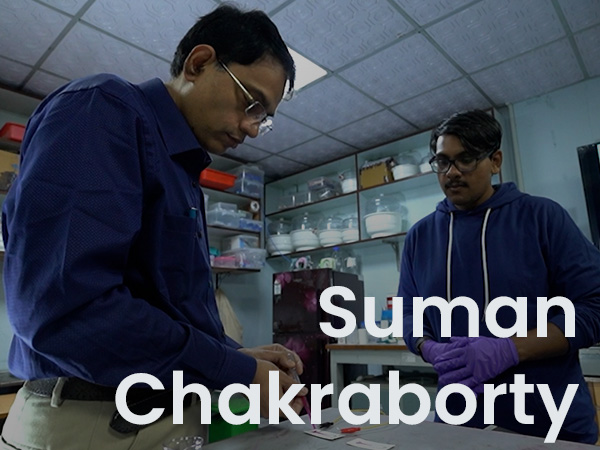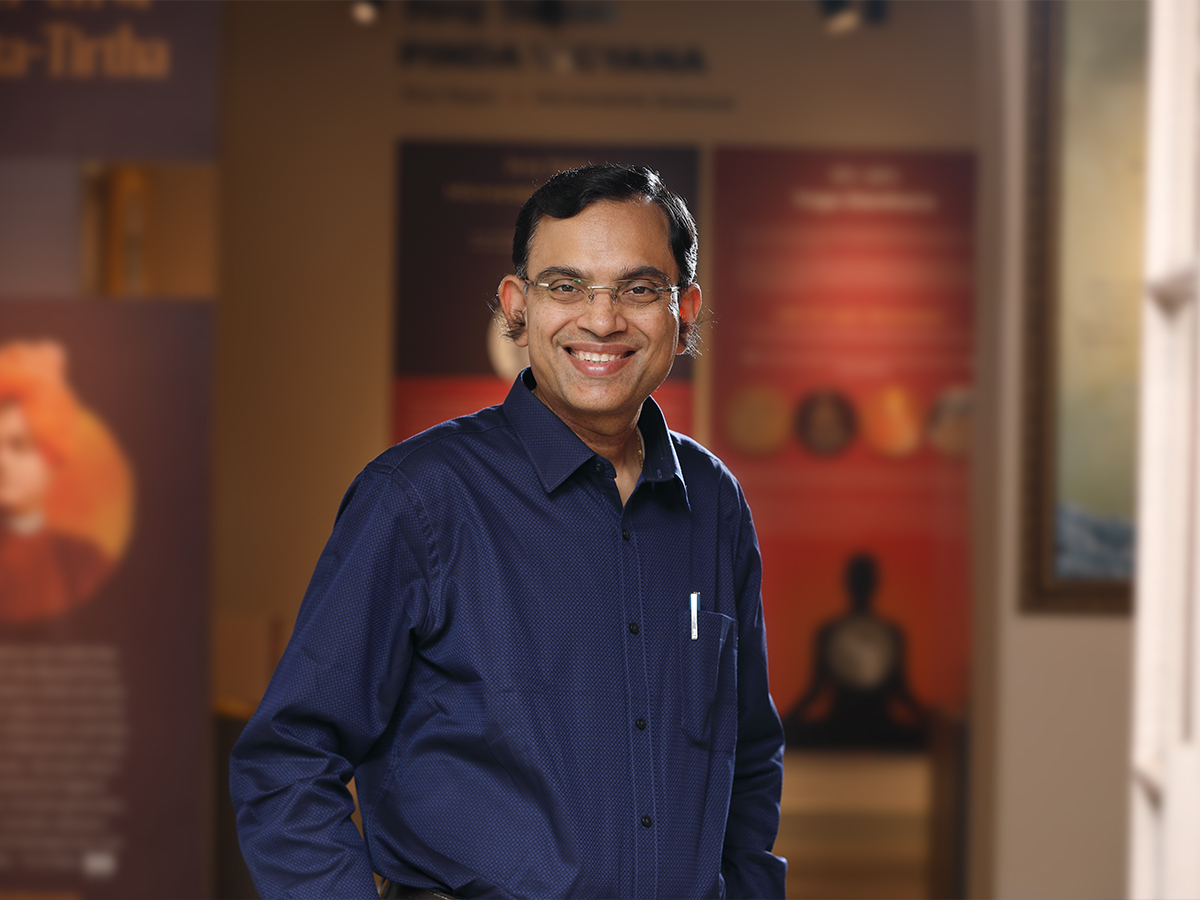The Infosys Prize 2022 in Engineering and Computer Science is awarded to Prof. Suman Chakraborty for his pioneering work in elucidating the interaction of fluid mechanics, interfacial phenomena, and electromechanics at the micro- and nanoscale. Using this understanding he has helped to advance healthcare in resource-limited settings through the invention of novel low-cost medical devices for sensing, diagnostics and therapeutics.
Infographic:
The age of microfluidics: From point-of-care to extreme point-of-care
Scope and Impact of Work
Prof. Suman Chakraborty’s research explores the physics of fluid transport at very small length scales, ranging from nanometers to microns. At these length scales, the physics are dominated by the interaction of the fluid with surface structure and interfacial phenomena may dominate. When these new physics are combined with new modalities for fluid actuation, such as the use of electric fields, an exciting array of new technologies becomes possible. Microfluidic technologies are making a lasting impact on fields such as healthcare, energy, transportation, microelectronics and many others.
Prof. Chakraborty has investigated the behavior of fluids in nanoscale geometries, with a particular emphasis on the role of fluid confinement and interaction with boundaries. At very small scales, fluid-fluid and fluid-solid interactions are determined by molecular-level interplay and the atomistic details of surface structure. Prof. Chakraborty has demonstrated that these interactions lead to a variety of unintuitive physical phenomena not encountered at larger scales. For example, he has shown that hydrophobic surfaces may be tuned to selectively produce hydrophilic behavior by exploiting the molecular and ionic arrangements at the interface between fluid and solid. This understanding has opened up the possibility of switchable surface wettability without the necessity of elaborate and permanent surface functionalization techniques. Another significant contribution has been the investigation of novel modalities to induce and control fluid motion at the microscale, and the interplay of capillarity, rheology and electrical modulation in transporting fluids at very small scales. Deeper understanding of these physics enables the exploitation of new paradigms for electro-fluidic interaction, and for the interactions of fluids, surfaces and interfaces. It makes possible new functionalities such as controlled capillarity and wettability, electrokinetic flow control, novel electrically controlled rheologies, and the development of new generations of microdevices for biomedical and other applications.
Prof. Chakraborty has exploited his deep understanding of microscale flow physics in developing unique low-cost biomedical devices for use in resource-limited settings where trained personnel may not be available. These have included paper-based handheld devices for blood testing using very small blood samples, devices for the painless extraction of blood samples and for drug delivery, devices for the detection of antibiotic drug resistance, as well as devices for water quality monitoring and pathogen detection in ultra-dilute samples, among others.
Bio
Prof. Suman Chakraborty is a Professor of Mechanical Engineering, and Dean, Research and Development at the Indian Institute of Technology, Kharagpur.
Prof. Chakraborty completed his undergraduate studies from Jadavpur University in 1996 and obtained his M.E. in Mechanical Engineering, and Ph.D. from Indian Institute of Science, Bengaluru in 2002. He joined IIT-Kharagpur the same year as assistant professor and became full professor in 2008.
Chakraborty has received many accolades including the Shanti Swarup Bhatnagar Prize (2013), J.C. Bose Fellowship (2018), and the G.D. Birla Award (2020).
Timeline
Jury Citation
The Infosys Prize is awarded to Prof. Suman Chakraborty for deepening our understanding of fluid mechanics at micro- and nano-scales, and for applying this knowledge to develop a new generation of low-cost medical devices.
Prof. Chakraborty has achieved numerous important breakthroughs in our understanding of how fluids behave at very small scales, and how this behavior may be exploited to achieve effects not accessible at larger scales. His investigations of the interaction of interfacial structure, hydrophobicity, rheology and external fields has led to the discovery and elucidation of a variety of rich physical phenomena only occurring at the nanoscale.
Furthermore, Prof. Chakraborty has used his expertise in microfluidics to develop a variety of sensing, diagnostic and therapeutic medical technologies with the potential to significantly transform health care in resource-limited settings.

Advancing Healthcare with Nanoscale Innovations
“Prof. Chakraborty is that rare researcher who combines the highest quality fundamental research with the translation of research into practical use. I am particularly impressed that Prof. Chakraborty’s work has the potential to expand inexpensive healthcare options in India and across the world, and am so proud that such deep and impactful work originated entirely in India. Congratulations Prof. Chakraborty!”



